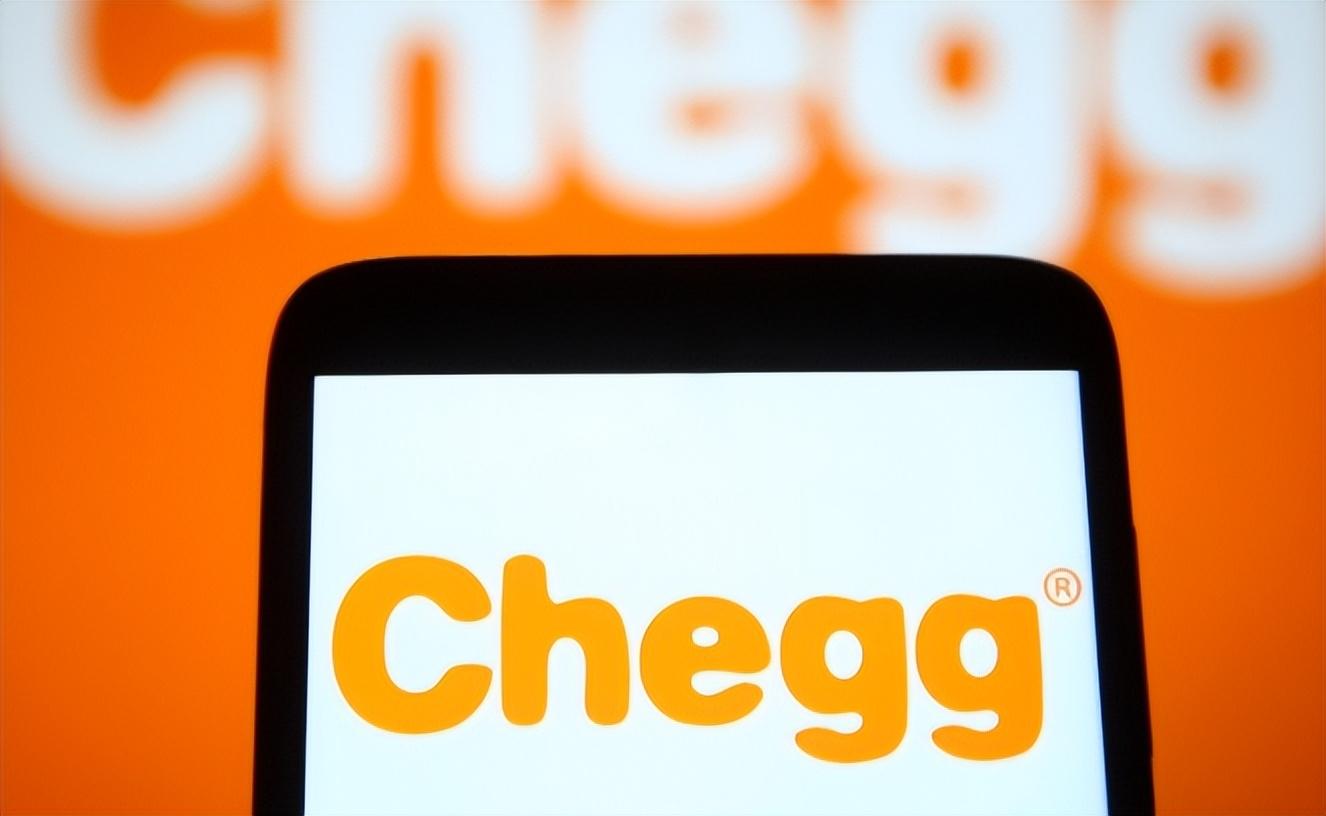Share price plunges 99%, online education giant felled by AI
![]() 11/19 2024
11/19 2024
![]() 475
475
When mentioning the concept of 'AI competing with humans for jobs', which positions do you think of first?
Is it customer service?
Is it an illustrator?
Or a data analyst?
At that time, no one anticipated that the first industry heavily impacted by AI would be online education, nor did they foresee an industry giant's share price plummeting 99% due to AI.
The first industry giant destroyed by AI
It is called Chegg, the first industry giant destroyed by AI.
Initially founded as a student exchange platform, Chegg later transformed into a textbook rental company and then an online education company. From a product positioning perspective, Chegg is somewhat akin to the American version of "Zuoyebang". They collaborate with numerous Indian contractors to provide services such as homework solutions and academic tutoring to student groups.

In 2020-2021, Chegg rode the wave of the online education boom. This not only pushed their homework search app past 50 million downloads, making it one of the mainstream online education platforms in the United States, but also garnered numerous loyal users willing to pay a $19.95 monthly subscription fee, realizing the dream of financial freedom for the company's founders.
Unfortunately, the good times didn't last long, as Chat GPT's emergence quickly disrupted Chegg's profit chain.
From a consumer perspective, there are only two reasons why they are willing to pay a subscription fee for Chegg. First, the platform provides textbook-quality answers. Second, users can receive immediate feedback at any time. However, Chat GPT, a competitor, not only offers similar services but also does so for free, making it a godsend for financially constrained students.
In a report, a student from Point Loma Nazarene University in San Diego stated, "Using Chat GPT to help with homework is better than Chegg because it's free, and you don't have to worry about not finding answers to your questions."
In terms of data, Chat GPT's emergence directly cost Chegg over 500,000 subscribers, and the company's share price plummeted 99% from its 2021 high. With a market capitalization erosion of approximately $14.5 billion, some bond traders even believe Chegg has lost its ability to generate cash flow to repay debts.
To be honest, facing the aggressive advancement of AI technology, Chegg's team didn't entirely give up.
They successively introduced various rescue plans such as mass layoffs and corporate restructuring. However, due to the difficulty in turning a large ship around and shifting consumer behavior, they could only watch as Chat GPT eroded their share price and user base.
AI delivers a critical blow to the online education market
A quote from "The Three-Body Problem" goes, "Weakness and ignorance are not obstacles to survival; arrogance is."
In 2022, the entire online education market entered a new phase of competition focused on retaining users rather than competing for traffic. At the time, some Chegg technicians suggested developing an AI tool that could automatically answer user questions, but this was rejected by the then-leadership.
This was their first missed opportunity.
As time passed, Chat GPT officially launched. However, few within Chegg viewed it as a competitor. They believed that education required addressing people's questions, and the intelligence level of machines was apparently insufficient to guarantee the quality of answers. Therefore, they chose to ignore Chat GPT and the concept of AI education, continuing to focus on the traditional business model of "online interaction with real experts."
This was their second missed opportunity.
A few months later, Chegg's data department noticed that more and more users were turning to Chat GPT, and the quality of GPT's answers far exceeded their expectations. Finally, Chegg's team panicked, realizing they had exposed their vulnerabilities to competitors and lost their user base over the past few months.
To reverse the losing trend and stem losses, Chegg's leadership first urgently established a partnership with Open AI to launch their own instant Q&A app. They then collaborated with Scale AI to create different AI teaching systems for various disciplines within the platform.
It sounds promising.
The leadership finally got it, and employees actively cooperated with the company's transformation. If this were a movie, Chegg would stage a stunning comeback next, with company founders gathering to celebrate their survival afterward.
Unfortunately, this isn't a movie, and Chegg's foolish moves never ceased.
After partnering with Open AI, Chegg's leadership harbored resentment, believing that Open AI had stolen their business and livelihood. Consequently, their partnership soon ended acrimoniously. While the subsequently developed AI system had an answer cost of only 25% that of human employees, users at that time were no longer satisfied with just "answers"; they wanted "solution approaches."
From initially missing the opportunity for AI development to today's products failing to meet market demand, the once-dominant online education giant Chegg has gradually been abandoned by users. Its net loss in the 2024 Q3 financial report reached $831 million, earning it the epitaph of "the first industry giant destroyed by AI."
Chegg's story is just the beginning
On July 17th of this year, Andrej Karpathy, the former AI head at Tesla and a founding member of Open AI, founded Eureka Labs, an AI education company.
Andrej believes that in the real world, teachers with solid teaching abilities, proficiency in multiple subjects, and patience with students are always scarce resources. The 8 billion people on Earth are not destined to all have access to high-level educational conditions. However, the emergence of AI can change this situation, allowing everyone to have their own "tutor." With the support of data feeding and technological iteration, each student can even receive personalized guidance from physicists like Richard Feynman and mathematicians like Carl Friedrich Gauss.
Shifting focus to China.
In the fall of 2023, a research team from Tsinghua University launched its "AI Teaching Assistant System." This model can help students with services such as knowledge point extraction, dual-teacher feedback, and academic performance assessment, providing personalized one-on-one teaching experiences for different students.
From the above two examples, it's evident that people are currently betting on AI education due to its ability to create personalized learning plans for each user, combined with the product characteristics of "immediate response and unlimited patience," making the educators' vision of "personalized education for all" a possibility. Moreover, from a technical perspective, humans first provide data to AI, which then builds an algorithm framework to form a loop output. In this process, not only are humans the learners, but AI also continuously evolves with the accumulation of data. This bilateral framework of continuous learning benefits both humans and AI.
However, it's important to note that technological development often comes with risks. Before promoting AI education on a large scale, we must eliminate potential risks one by one, such as data security, content quality, and AI bias. After all, once AI technology becomes widespread, it may execute the ancient mechanism of "a lie repeated a thousand times becomes the truth" among the population, thereby contaminating the knowledge treasure trove of the entire human race.
References:
Ecnofin: The Rise of AI Deals a Heavy Blow to Online Education Giants
AI East: OpenAI "Kills" Online Education Giants
iFinD: U.S. Stock Market Financial Report | Chegg Releases Q3 Financial Report, Accumulating a Net Loss of $831 Million in the First Three Quarters
Wall Street CN: The First Industry Giant Destroyed by AI Emerges: This Education Company's Share Price Plunges 99%
Gmw.cn: When Education Takes on the Wings of AI
Jiemian News: Latest Developments After the Founding Member of OpenAI Leaves: Establishing a Free AI School
Beijing News: From "Tool" to "Partner", as AI Teaching Assistants Become More Common in University Classrooms





